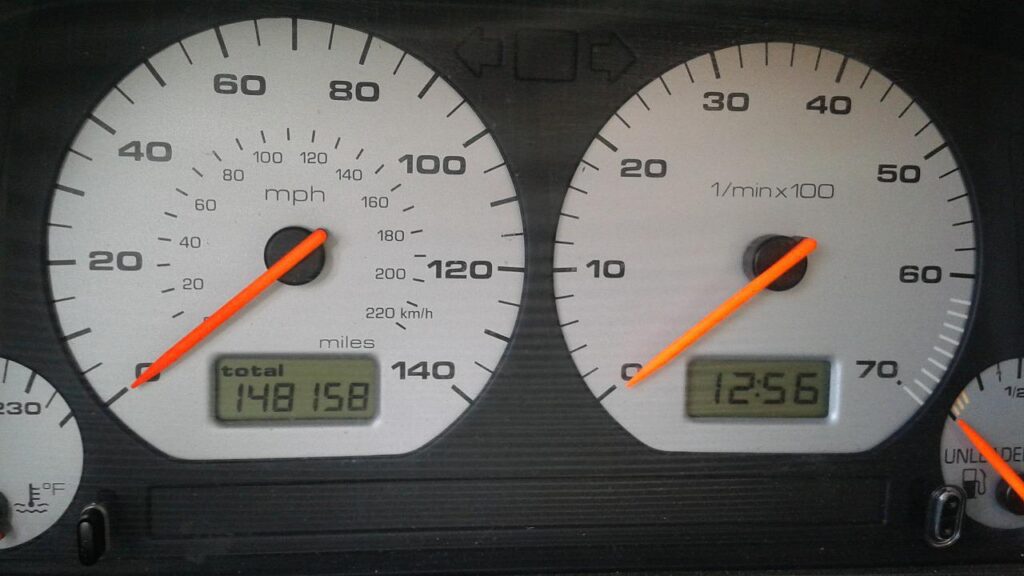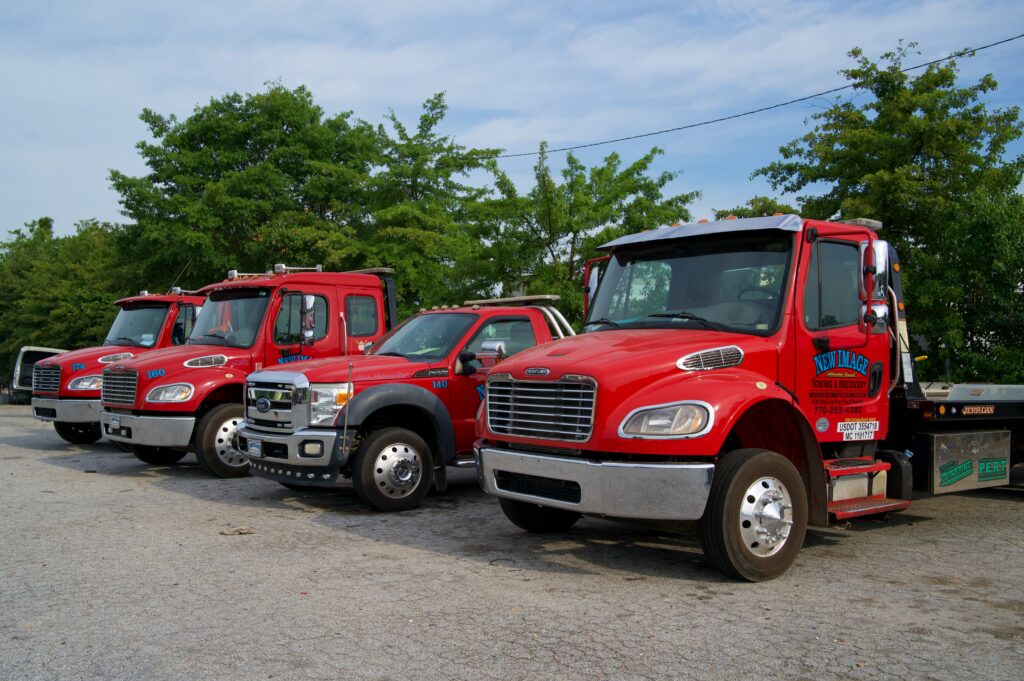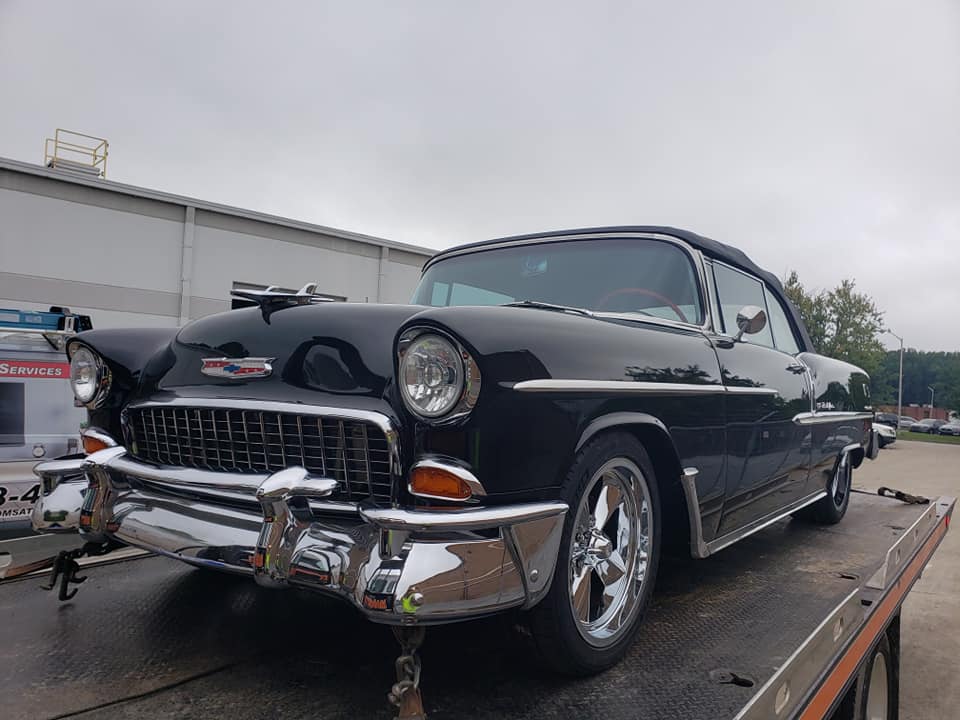Protecting your vehicle from unnecessary wear and tear is essential to extending its life and realizing the total value of your automotive investment. As you approach 100K miles or even earlier, scheduled maintenance should be performed on your vehicle for the best results. Failure to perform this maintenance can dramatically reduce the longevity of your vehicle’s mechanical components and put you at risk for unpleasant surprises.
Servicing your car after 80K miles helps you get back on track with optimal efficiency, performance, and safety while preventing many common issues due to poor servicing practices. However, there comes a time when we all end up needing a towing service. With these tips for servicing your vehicle, you can keep your car on the road longer.
Why Is 100K Miles An Important Milestone
The average lifespan of a vehicle is 150,000 miles or 12 years. It’s easy to see why this milestone is so important – it’s halfway there! Any problems you have will only worsen if you don’t take care of them immediately. The sooner you fix any issues with your vehicle, the longer it will last.
If you keep up with the recommended maintenance schedule, however, your car should last longer than this average. Proper maintenance can increase the longevity of your vehicle by as much as 50%. It’s not unusual for someone who has taken good care of their car to drive it well past 200,000 miles before replacing it with a new one.

Essential Maintenance After 100K Miles
If you’ve reached 100K miles, it’s time to start thinking about what parts need to be replaced. While some cars may be able to go another 10,000 miles before needing significant repairs, other vehicles might need new parts as soon as they hit 60,000 miles. Take a look at these essential maintenance items that you should replace after 100K miles:
Fluids
Check all fluids (transmission, power steering, coolant, brake, and fuel) for proper levels. If any of your fluids have been neglected or have not been checked in a while, they may need to be replaced (check your owner’s manual).
Belts and Hoses
Check belts for cracks and looseness; replace as needed. Inspect hoses for leaks and cracks; replace as needed.
Tires
Rotate your tires every 5,000 to 10,000 miles, depending on where or how often you drive. Replace if worn below 2/32nds of an inch tread depth in any tire area or 1/16th of an inch tread depth at any point around the entire circumference of the tire — if you can see the light through the tire when viewed from above, it’s time for a replacement).
Brakes
You should have your brakes checked at least once every year or two. Brake pads and rotors wear out over time, so be sure you have them replaced as needed and ensure there aren’t any leaks in the system.
Suspension
Having your suspension checked for wear and tear is essential because it helps maintain control of your vehicle and reduces tire wear. If you notice unusual movements when driving or hear noises from the suspension area, bring it in for service as soon as possible.
Compression Test
This test checks for internal engine problems such as worn valves or piston rings that may cause poor performance and reduced fuel economy. It’s best done when the engine is cold so bring it in during the winter months or on a cold morning before starting your commute so we can perform this test accurately.
Shocks and Struts
Your shocks and struts are part of the suspension system that keeps your vehicle moving smoothly over bumps and dips in the road. After 100,000 miles, these components can wear out and cause significant problems with your ride quality and handling. Changing them is usually not a difficult task. However, you should consult with a professional shop before attempting any repairs yourself, as this type of work can be hazardous if performed incorrectly.
High Mileage Oil
Oil is an engine’s lifeline, so it’s essential to change your oil regularly — ideally every 3,000 miles — but especially after 100k miles. At this point, most oils have lost their effectiveness and must be replaced with a high mileage synthetic blend designed to extend your engine’s life. The same goes for filters: Change them out every 30k miles or whenever you change your oil.
Timing Belt
The timing belt drives the camshafts in your engine, opening and closing valves at different times during the combustion cycle. If your vehicle has over 100k miles on it, it’s a good idea to replace the timing belt before it breaks because doing so can damage other components or cause internal damage to your engine. Tack on an extra $500 for labor costs for this job if you’re not comfortable doing it yourself.
Exhaust System
If you notice a rumbling noise coming from your car, it could mean the exhaust system needs replacing. Exhaust systems are made of metal, which can become damaged over time and must be replaced. A good indicator that your exhaust system needs replacing is if you start having trouble with emissions testing or if you hear loud noises from the engine when you accelerate.
Catalytic Converter
Catalytic converters help reduce harmful exhaust emissions by converting them into less toxic substances through chemical reactions. They can become clogged over time leading to poor fuel economy and poor performance from the engine. If your car starts having problems passing emissions tests or experiencing poor performance, then this could be an indication that your catalytic converter needs replacing.
Oxygen Sensor
An oxygen sensor tells your engine how much air is coming in and how much fuel needs to go out. Over time, this sensor will degrade, causing poor performance and efficiency. If your oxygen sensor is faulty, it could cause other problems like misfires and rough idling. A new oxygen sensor will cost between $100 and $200 depending on where you get it from. Check out dealerships or a local auto parts shop.

When You Need Assistance
You should note a few checkpoints: do all your tires have ample tread left? Are you looking for signs of uneven tire wear? Are all the belts and hoses in good shape and show no deterioration? Do you hear odd noises when you step on the brakes or accelerate? It is vital to keep up with vehicle maintenance for a reliable ride. However, if your vehicle breaks down, New Image Towing can help!
